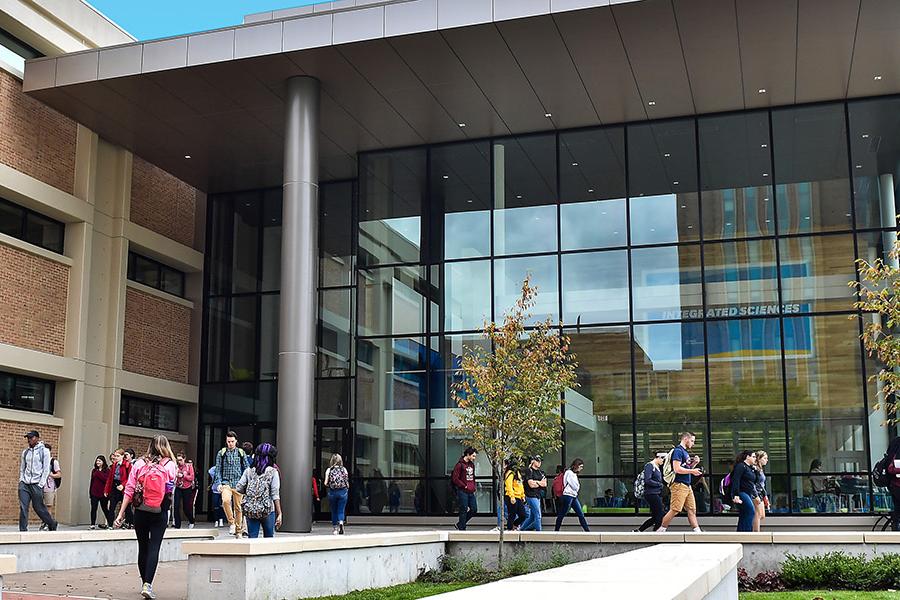Research & Science

Excavations and Modifications: 2021 Farris Family Innovation Awards
The Farris Family Innovation Awards support the research of tenure-track faculty members who are not yet tenured at Kent State and who have shown promising drive for their field of study. In May 2021, Faculty Affairs announced the recipients of this year's Farris Family Innovation Awards: Michelle Bebber, assistant professor in the Department of Anthropology, and Elda Hegmann, assistant professor in the Materials Science Graduate Program.

Approaching the Complex Questions: New School Offers Multidisciplinary Research and Learning
Kent State has established a new school within its College of Arts and Sciences focused on the social sciences and humanities. The School of Multidisciplinary Social Sciences & Humanities will provide an academic home for innovative approaches to complex questions.

Kent State Announces Winners Of The Faculty Outstanding Research And Scholarship Award
Kent State's Jonathan Maletic, Ph.D., in the Department of Computer Science and Tara Smith, Ph.D., in the College of Public Health are the winners of the 2021 Faculty Outstanding Research and Scholarship Awards (ORSAs). The ORSAs recognize the hard work and dedication of faculty members who have been with Kent State for more than 10 years. Read more about the winners and how they display the highest levels of scholarship.

Quality of Life: Researchers Exploring Treatments for Spinal Cord Injured Patients
A research group in the College of Arts and Sciences at Kent State University is searching for potential treatments for men who have suffered spinal cord injuries and hope to regain bladder control and sexual functions.

Kent State Announces Winners of the New Faculty Outstanding Research and Scholarship Award
Kent State has announced the winners of the 2021 New Faculty Outstanding Research and Scholarship Awards (ORSAs). The ORSAs recognize the hard work of junior faculty members who have been with Kent State for less than 10 years. The 2021 winners are Shana Klein, Ph.D., in the School of Art and Metin Eren, Ph.D., in the Department of Anthropology.

iSchool and College of Nursing Secure $100,000 Grant Researching Libraries and Childhood Development
A research team from Kent State University's School of Information working in partnership with Kent State’s College of Nursing received a National Leadership Planning Grant for Libraries from the Institute of Museums and Library Services (IMLS) for $99,982. The funds will support the first stages of what investigators have named Project SHIELD (Supporting Healthy Infant Early Learning and Development).

Researchers Take a Closer Look at Nitrogen in the Chihuahuan Desert, New Mexico
Researchers from Kent State University and the University of New Mexico determined how nitrogen-fixing plants and soil microbes contribute to the overall nitrogen availability in the Chihuahuan desert in New Mexico.

Professor Receives NASA New Investigator Award
He Yin, Ph.D., assistant professor in Kent State University’s Department of Geography, recently received NASA’s New (Early Career) Investigator Award in Earth Science. Yin will lead evaluation and research of the devastating effects that the Syrian civil war has had on croplands throughout the eastern Mediterranean region.

Kent State Alumna and Army Neuroscientist Hopes to Become Astronaut
Kent State Alumna, Allison Brager, Ph.D., is pursuing her lifelong dream to become an astronaut. Brager, who is a major in the U.S. Army stationed at Fort Knox, Kentucky, has been in the application process for two years in hopes of becoming an astronaut candidate. A Northeast Ohio native, Br…